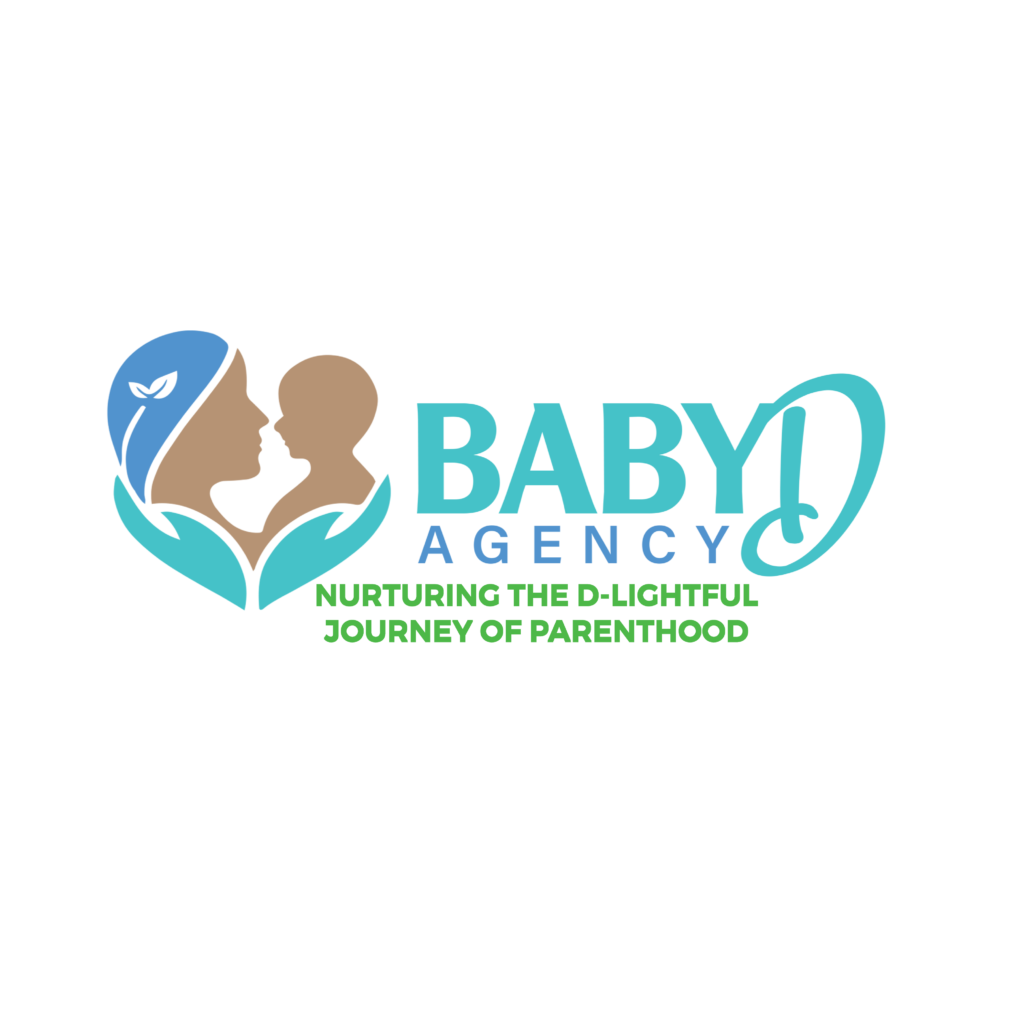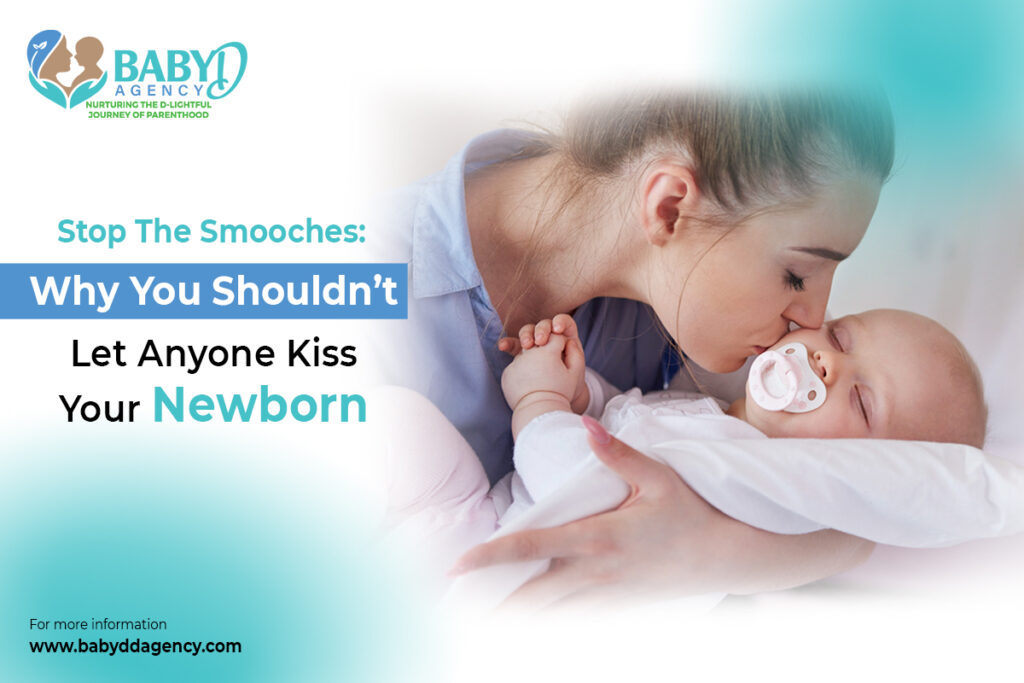Once your little bundle of joy has been put in your arms, all you feel as a parent is the urge to cuddle and kiss the newborn. While skin-to-skin touch is considered requisite for newborns, it is best provided by the mother and the father, not relatives and friends.
As a parent, the well-being of your little one will be paramount in your head. All the baby books you might have read before the delivery would have told you that newborns are sensitive and weak, and may catch diseases quickly thanks to their developing immune system.
Diseases are transmitted in different ways, with touch being one of the most common forms of transmission. A newborn’s skin is delicate and may have poor defenses. One of the most important protective measures parents can take is to limit or completely avoid allowing others to kiss their newborn.
Although the gesture of kissing a baby often comes from a place of love and affection, it can pose significant health risks to the newborn due to its underdeveloped immune system. In this blog, we’ll explore why this precaution is essential for safeguarding your baby’s health.
Newborns Are Vulnerable To Infections
Newborns have a fragile immune system. For the first few months of life, they rely heavily on the antibodies they receive from their mother during pregnancy, which provide some protection against infections.
As they are exposed to the environment, their immune system begins to kick in and it begins to create antibodies that protect the newborn. Still, caution should be maintained. Ensure that no one except the mother and father are in close contact with the child. Do not allow relatives to kiss the baby. While this may create some tension between family members, you should be able to explain that for the child’s safety, such measures are being taken.
Diseases That A Newborn May Contract Because of Kisses On The Face
Here are some of the common conditions a baby may contract because of an adult carrying certain viruses which they transmit to the baby when they kiss them.
- Herpes Simplex Virus
One of the most concerning risks associated with kissing a newborn is the transmission of viruses, particularly the herpes simplex virus (HSV). HSV can be easily transmitted through direct contact with the skin, and many people carry the virus without displaying any symptoms. While Herpes Simplex Virus does not pose much of a threat to adults, it can be very dangerous for newborns. HSV might lead to neonatal herpes, a severe infection that can affect the brain, lungs, and other vital organs. The consequences of neonatal herpes can be devastating, including long-term neurological damage or death. This is one of the main reasons why health professionals strongly advise against allowing anyone, especially those with cold sores, to kiss a newborn.
- Respiratory syncytial virus
RSV as this is commonly known is another disease that can be passed on from adult to baby through kissing. Again, this condition does not harm adults the way it does babies. In adults, the symptoms are mild, much like the common cold. However, in babies, it can cause severe infections like bronchiolitis and pneumonia.
- Pertussis or whooping cough
Another serious illness that can be passed on through close contact, such as kissing, is whooping cough (pertussis). Newborns are especially at risk for whooping cough before they have completed their vaccination schedule, and the disease can be fatal in infants.
- Group B Streptococcus (GBS)
This is a type of bacterial infection that is transmitted to babies through saliva. This can cause severe complications for babies such as sepsis, pneumonia, or meningitis. Since newborns are still developing their natural bacterial flora and have not yet built up resistance to many common bacteria, they are more susceptible to infections.
How To Set Healthy Boundaries For Your Baby’s Safety
Once you have brought your baby home, there will be a steady stream of visitors for the next week or so. From friends to family, everyone will want to cuddle the newborn. So, how do you prevent the inevitable big-hearted smooches they may want to plant on your newborn? Here are some tips.
- Ask Visitors To Sanitize
Ask visitors to wash and sanitize their hands when they come in contact with your little one. Send out a firmly worded message to your friends and family telling them to wear masks and sanitize properly before picking up your child. Inform them that smooches are a big ‘no’.
- Ask Them To Wear Masks
Do not encourage visitors who have been ill to visit. Specifically state that they should visit when they are recovered. For extra precaution, ask them to wear masks when they come to visit.
- Maintain Hygiene
Even in the absence of known infections, the general hygiene of individuals who come into close contact with the baby is a concern. Bacteria and viruses can be present on the skin, in the mouth, and on the hands, even if a person appears to be healthy.
A simple cold or flu virus could result in a severe illness for a newborn. It is essential to maintain strict hygiene practices around a newborn, including handwashing and minimizing close contact, to reduce the risk of transmitting infectious agents.
- Ask professional help to cooperate
If you have taken the help of a certified newborn care specialist to care for your newborn, insist that they also follow the rules and maintain hygiene around the newborn.
Wrapping Up
The health and well-being of your newborn should always be a top priority. While it might be difficult to ask others not to kiss your baby, especially when they are expressing their love and affection, it’s a necessary step to protect your child from potentially serious health risks.
By understanding the reasons behind this precaution and communicating them effectively to those around you, you can help ensure a safe and healthy start for your newborn. Remember, your baby’s safety is paramount, and taking these preventive measures is a simple but powerful way to show your love and care.

